Newsletters
Newsletter January 2015 – NYRs and falling in love…beCOS it matters!
Welcome to 2015 with SALT!
Remember the days when it was easy to fall in love with everything and everyone? Remember when you used to get really excited…like jump up and down excited…wave your arms in the air excited…grin from ear to ear and laugh out loud excited…like on the day you got your first valentine’s card or your first car or the yes to that “dream” job you so badly wanted?
Remember how you wouldn’t listen to any “words of warning” or have any place for negativity? How present you were? How curious, open and spontaneous you were? How you washed the car weekly and walked around at work with a spring in your stride and your shoulders high? And how it all changed over time?
As we approach every New Year we do mental scans over the year done as well as mentally project into the year ahead with the eager anticipation of personally designed changes – just like a new English vocabulary book with 365 pages for your new SALT course or seminar. Did you enthusiastically set yourself some NYRs on the 1st of Jan? Or have you already given up because, despite the fact that you have set them SMART-ly or according to other expert models, they (still) don’t work…the vocabulary book’s somewhere at home or in the office…the short and tragic life of a new year’s resolution…RIP!
Here are some interesting stats on NYRs (seems the Europeans aren’t particularly keen on being transparent about things like this). Not exactly an impressive success rate for the millions of people that kick off each January 1st with the best of intentions.
You know why? There are really good expert explanations like…
– Scientific studies have shown that you’re not attending enough SALT skills seminars and communication courses
– You’re being too vague
– You fear failure,
– You procrastinate
– You’re not hanging in there long enough, 21 days to be exact, to reap the rewards of the new habit(s) AND
– You’re formulating your goal or New Year’s resolution with modal verbs e.g. must, should, have to, ought to, need to etc. You seriously rebelled against a parent part or others telling you what you should or must not do so why do you think your own “instructions” are going to work?
…but the one that is never mentioned is that falling in love is also the secret to success. That’s right. Fall in love and feel it with all your senses. I realise it sounds crazy to tell a business person to fall in love but you know as well as I do that if half the managers had to fall in love with goals and plans what a wonderful place our working world would be! Close your eyes and imagine a person freshly “in love” (frisch verliebt) – they are delightfully energising and carefree and they swoop us up with all that feel good stuff they’re feeling!
Fall in love with your goals. Fall in love with the things you want to achieve because, just like your first love, your first car and that dream job you got, you will be prepared to put that little bit of “extra” into whatever it takes to make it happen. Fall in love like in the beginning.
But, before you do that, do this little check. Ask yourself these questions:
– What do I really want? Start your answer with “I want……”
– What does that mean for me? Is it the beginning or the end? Think about this carefully. If you think something (your marriage / relationship / job) is over, finished, the end you’ll treat it like that, but if you treat it like it is a new beginning you will put the spark of passion back into success. All around you “new” things are filled with a different kind of energy to things thought of as point- and useless!
– What am I prepared to do for it i.o.w how badly do I want it?
– What will be different/better if I achieve it, and what will happen if I don’t?
If you clarify these points, you’ll either make and succeed in your goals…or you won’t.
In my next newsletter I’ll be telling you more on the “neuro-science” of why resolutions and some goals fail, why we hinder ourselves from achieving our goals, why we procrastinate (self- and time management) and I’ll give you good tips on how to integrate new habits so that they stay – for as long as you want them to! Science it is but you don’t have to be rocket scientist to succeed!
I wish you lots of falling in love in 2015 beCOS it matters. Remember to be curious, be open and spontaneous. Also to be present and to look out for our skills and language offers – beCOS it really matters.
Good things are going to happen!
PS: So where does this all new year resolution stuff come from anyway? This tradition is woven deep into our heritage going back to the Babylonians who promised their gods that they would return borrowed items and pay their debts at the first of the year, the knights of the Medieval period renewed their vows to chivalry and the Romans made their promises to the god Janus for whom January is named.
A present packed with presence! Dec 2014
Giving the present of presence!
As the merry, merry season of giving and receiving is upon us, my mind has been busy with finding a befitting present to share with you! A present that is worth more than its weight in gold that could be used everyday. I didn’t have to look long or hard! I read this the other day: “The only thing becoming scarce in a world of abundance is human attention” by Kevin Kelly. That’s it! A present. A presence present which took me walk down memory lane and my 2014 blog path.
In 2010 I had a pretty bad diving accident in the Red Sea. The accident was due to my own negligence – human error. It was as a result of being distracted and too busy. I spent a month of days doing 90min sessions in a (de)compression chamber. During this time I started sensing the magnitude of the “luck” I had had and to appreciate every next minute that was pain-killer free. I started appreciating every slow next step I could take and I Curiously started Observing and Spontaneously living in the moment of presence and gratitude. I fell in love with the idea of being alive.
Back to the present – whenever distraction and busy-ness sets in, I remind myself of the days after the diving accident. BeCOS (be curious, observant,
Particularly this year I’ve been busy with exploring the treasures of being present and mindful. My own (real) mindful journey started at the airport in February 2013 with a “grab off the shelf” book on how to be a mindful international manager (I get very excited about intercultural topics). I later filtered through the glut of online information and since then (while trying to stay in the balance and not scare off my clients who (mostly) keep the financial sector wheel turning) I’ve been testing myself on every level of my own presence and mindfulness. Here’s a not too often (thank goodness) “work” example of more (or less) presence. I am sitting with a client…it`s afternoon, after lunch (fatal) and I am having a serious problem keeping my thoughts in the room. You know that feeling…I know you do. So lately, when the sensation of slackening neck muscles, rolling eyes and strolling thoughts are present, I (internally) utter “PRESENCE” to myself and BAM! I’m back, awake, alert and mindful.
Here’s another “balancing” example…I would just stop and curiously act on whatever spontaneous thought/crazy idea/impulse had crept into my head space. Check out this clip: balancing bike and presence present
I didn’t wait for the “right” or “perfect” moment/outfit/setting/thing-
And besides, always being perfectly balanced is boring.
And then I would observe reactions and responses. Observe my immediate state of be-ing (it was hard to get the smile of YEAH! and pride off my face) and observe others – and this was the real reward – they had fun too!
Here’s the question. What are you too busy doing?
There are distractions everywhere. Between raising kids, marriages/divorces, making a living, facebook, education and self-development, as well as bosses there is no shortage of people and things demanding our attention. And we keep getting faster and faster, i.e. using microwaves, drive-in take outs, standing while eating or getting 4G because 3G just doesn’t work for us anymore. And we don’t know if it’s “wake up and smell the coffee” or “stop and smell the roses”. We’re too busy. Are you too busy doing baking and decorating and preparing and making perfect to enjoy what the essence of Christmas is all about and to pay attention to what really matters?
I don’t remember most of the things I “like” on FB, but I do remember walking in the bush with rhino. I forget details around things that didn’t move me but I remember details of events and faces and words that tugged at my heart – whether good or bad. I forget things my mum did when she was busy, but I remember the things she did when she wasn’t. I forget things that have little meaning to my life or make no sense and I remember the impact of things that added value and purpose.
When you can, talk rather than text, call rather than write, and listen rather than drift with well timed empty responses. Be available. Sense others. Sense self. Sense life at its fullest.
Make a difference to someone’s life by being “all theirs”. Give them your presence as a present, at Christmas time and every day. Never underestimate the power of joy and giving – it will sustain you in good health and happiness. For sure!
This is my present of presence to you. Worth more than gold. I hope you’ll receive it Curiously, Openly and Spontaneously! BeCOS it matters!
Peace, light and love,
PS 1: Make hay while the sun shines! Another presence present and
PS 2: Thank you for your €1 donation!
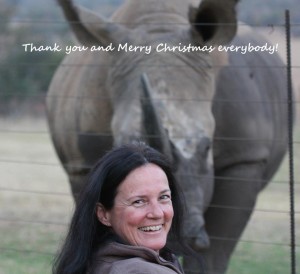
Newsletter – Autumn 2014

I hope your summer was as good as mine! I got to “baby sit” a 6 month old cheetah, and I participated in the micro-chipping, DNA testing and safety collar-ing of a rhino. I still get goose bumps thinking about it – because I was so mindful of being “in the now” that it was deeply anchored in my pleasure box.
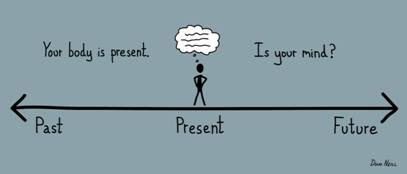
And hey, just because summer is “over” doesn’t mean we don’t have to be mindful anymore! In fact, it would be super supportive if we continued practicing mindfulness. Every day. This is why.
I read an article which was posted end of August. The title being very explicit enticed me to read it and the content was even more disturbing. The article is (sadly) about (horrible) global incidents that happened this summer. I ask myself why. What could the contributing causes be? I allowed myself time to be mindful of the content.
I recently conducted a 3 day Leadership Skills Seminar for international project managers working at one of Austria’s well known construction companies. The seminar includes (intercultural) communication, management (styles), teams (dynamics, compiling effective teams, development phases etc.), conflict (personal attitudes, why it happens and how to best deal with it) and giving feedback. As teams go, this group also went through Tuckman’s model of the 4 development phases spiced up with a bit of open tension amongst a few of the members! I know why. I know one of the main causes. It’s about (intercultural) communication…or rather, the lack of it! For example:
- People not separating people from the problem. People making people the problem. E.g. “It’s your fault that…” or “You…XYZ” or “It’s all because of you…”
- People focussing on positions instead of interests. “In my opinion it is like this…and that is how it is going to stay”…which reminds me of another quote: “The belief that there is only one reality, is the most dangerous self-deception”. Paul Watzlawick
- People not saying what they want or what they would prefer. E.g. “No, I don’t want to…” or “I am not going to accept…”.
- People “yes, but-ting…” – triggering argumentation which leads to invalidation of opinions, unmet needs and hurt feelings which leads to a form of conflict which …may…result in a “war of the roses” or better still…global conflicts…
- People not generating options or solutions. E.g. “You must/should/ought to/need to…”.
- People not doing or saying things because they want to “be nice”.
- People being people.
And I get frustrated. Why?
Reason 1: There are notions like: We share a language so we “understand” and/or we’ve reached the level of “manager” so we don’t need any more “training” on social or even worse “soft” skills…the “notion list” is long.
Reason 2: When you(one) understand(s) the 3 most basic mechanics of communication (and I am most certainly NOT selling a “be nice” product) you realise that we – all of us – can contribute to a world of peace. Here’s the catch. The responsibility is yours. It starts with you.
Within me burns the desire to share the “what” and the “how”.
We could meet face to face, or on skype! You know where to find me.
I wish you a beautiful transition from the green tones to the igniting-ly warm orange tones!
Peace,![]()
The most powerful weapon on earth is the human soul on fire. Ferdinand Foch
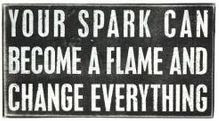
PS 1: Extract from Leadership Now:
Effective leaders recognize their ability to achieve results from their direct reports – to generate engagement, to motivate, to get their team headed in the right direction – often succeeds or fails based on their ability to communicate.
Their business results, and their ability to move people to action, are achieved by communicating strategically and doing it well; they are Leader-Communicators.
In business, communication that has meaning is a difference maker. It can be used to build understanding, and make teams and individuals more efficient. It can be used to recognize good work and reinforce critical behaviors. It can be used to coach or mentor one person, or lead organizational change. It can share a vision, inspire confidence, strengthen a business and build a legacy.
PS 2: Where passion, skill, and purpose collide, bliss resides.

Newsletter June 2014 – Summer
Finding focus with a conscious awareness!
It all started with me rushing through an airport thinking about the long flight ahead of me and how I should utilise the time constructively to fill my mind. In other words not to sit and do nothing.
I hurriedly scanned over the shelves of the business section and “The Mindful International Manager” caught my eye. That was a couple of years ago. I still haven’t read the book. On that flight I ended up doing exactly what so many people (especially my mother) had warned me not to do. I did nothing. I allowed my mind to drift into the busy-ness of passengers settling in for the 11hr flight and the sound of the cabin crew preparing the evening meal which lulled me to sleep. I missed dinner. Damn.
Getting back to being “mindful”. It’s all over the place. Business, parenting, training, coaching – everything can be done better if you do it with mindfulness. So I became mindful about being mindful and filled my mind with various opinions on the subject ranging from business to psychotherapy and personal blogs.
This is what they have to say: Mindful is based on an old practice (Buddhism) which is now supported by medics and scientists – I love it when this happens! It’s the “science” of finding focus in a stressed out, multi-tasking culture – being consciously aware. Mindfulness has made it onto the cover of Time and Forbes; companies like Google and Apple are providing mindful courses and training for their employees with, needless to add, phenomenal ROI (return on investment)!
Here’s what I have to say: If more of us spent more time doing more “mind-less” things rather than being so focussed on having our minds full all the time (in the car, restaurant, with friends and family) more of us would be more mindful of others and events around us.
There is great value (and good health) in focussing on the here and now. Confirming limiting beliefs with statements like “I’ll be happy/successful/content when…” is simply deferring happy-ness. Sometimes, in order to move forward, it is necessary to retreat. Sometimes, in order to make progress we need to slow down. We sleep to rest, regenerate and grow. Think babies (or dogs)! Otherwise think emotional burnout or heart attack.
In order to be mindful, we need to “empty” our minds. We need to focus more on the present. It’s in the word itself, the present is a gift. The past is done and gone. The future is an unknown which you and I have no control over. We have the present. Free up, let go, and keep your hands and arms open to receive more of the new!
Roll on Summer! I cannot wait to fill my days with doing nothing. Focussing on the song of blackbirds, water splashing into my fish pond, bees buzzing around my lavender blooms and who knows… being in the African bush once more to listen to the rasping sound of rhino grazing grass – the sound of nature. The sound of calm. The sound of now. I go to nature to have my senses put in order.
I wish you an awesome summer filled with doing less, lots of presence as well as plenty of mindfulness!
Newsletter May 2014 – Springtime Gardens!

Springtime Gardens!
“A garden is a grand teacher. It teaches patience and careful watchfulness; it teaches industry and thrift; above all it teaches trust”.– Gertrude Jekyll
Spring “out there” is a lot like spring “in here” – a reflection of one’s mind and soul.
Just like my work, spring is the colourful evidence of new growth and time well invested.
Just like my work, spring is the return on investment (ROI) of hope and trust.
When I first began gardening what I didn’t know was made up for with enthusiastic naivety! I even started SALT like this! What I didn’t know about running a business was made up with hope and faith that something would emerge from the soil, after some good old toil! It certainly worked!
Of course there were some expensive and time consuming lessons too and as my business started growing I realised I needed more skills and knowledge so I went off to other schools to learn how to prepare for and “plant” more beautiful gardens in my world of training and coaching. I learnt how to better assess the needs of individual flowers and plants. How to strategise their maximum growth and how to simply step back, observe and let things happen.
Just like my garden, SALT’s garden’s inhabitants require patient yet attentive nurturing and care; varying strategies and methodologies need to be sourced and individually implemented and then it is best to step back and let things “grow” by themselves!
Acquiring a language is like this. I plant grammar, vocabulary and idiomatic seeds, “walk the talk” with you, and then you need to be left to blossom in your new garden of words.
Acquiring skills is like this too. I plant seeds, show you the “how” and then you need to go out there and experiment on how to optimise your personal growth!
Remember to do the deed, plant a seed and spread the word! Success and the “power of one”
Happy springtime!

Newsletter March 2014 – Choose your words – you can!

Choose your words – you can!
Ever wondered why when asking someone if they can do something for us, the question opens up a “can of worms”?
The word “can”, generally refers to *a metallic container, **the ability to do something or ***to have the permission to do something, as an example:
*The people were squeezed into the arena “like sardines in a can”.
** I can speak English which helps me a lot in international meetings.
***He can attend that SALT Presentation Skills seminar next month!
And yet can, can be used so incorrectly at times.
Scenario: It is 4.50pm, the boss walks in and asks: “Can you please proofread, format and correct my power point presentation for my 8am meeting tomorrow?”
Are you able to? Yes.
Do you want to? No, not really!
It can lead to resistance and resentment
Scenario: Mother asks child doing something on computer “Can you take out the garbage?” Most of us know the reactions, we were children too.
Question: “Can you swim?” Answer: “Yes” or “No” – simple, straight forward, no emotion.
So what’s with the first two scenarios?
Well, it’s all the “stuff” around the words (relationship, emotions, tone of voice, personal perceptions and beliefs, culture, language levels etc) that impact the meaning and the willingness to resist or accept the communication.
Now try the first two questions starting with “will”. See what happens.
It sounds softer – more pleasing to the ear. Positive outcome.
It transfers accountability even if the action is done later, the requested action will happen. If not there are other issues which need to be resolved.
Possible answer to 1st scenario: “I am on my way home but will a) check it at home or b) come in earlier and have it ready for you tomorrow morning”. Positive outcome.
Possible answer to 2nd scenario: “I will do it as soon as I have finished this XYZ”. Positive outcome. Done deal. Everyone satisfied.
In some of my work such as mediation and supporting foreign delegates in international workshops and meetings I frequently experience the sometimes negative and confusing impact basic words have on given situations and just the other day I experienced this myself so thought it important to share the importance (and power) of words. Choose them carefully!
This is such a beautiful example!
I wish you a marvellous March and I look forward to sharing some more linguistic magic with you! Come and learn more about words in a seminar!
PS 1: Consider the impact of “I think…” too. E.g. “I think you definitely deserve that promotion!” vs. “ You definitely deserve that promotion” or
“I think she is the best person for the job” vs. “She is the best person for the job”. Choose your words. You can!
PS 2: http://dictionary.
http://thesaurus.com/browse/
PS 3: http://dictionary.
http://thesaurus.com/browse/
Newsletter February 2014 – Spelling and spellbinding!

Spelling is less important than spellbinding!
“spɛlbʌɪnd” verb / gerund or present participle: spellbinding.
To hold the complete attention of (someone) as though by magic; to fascinate.
Synonyms: fascinating, enthralling, entrancing, captivating, riveting, gripping, very interesting, very exciting, thrilling, absorbing, compelling, hypnotic and magical. Origins: dated back to the 1800’s from the words “spell” (magic) and “bind” (captivate).
I hear many reasons why people are not so good at doing whatever they have to do in English (apart from just speaking it) and some of the excuses I like best are “because I want to be perfect!” or “because I am afraid of making mistakes”.
I don’t want to get onto that “broom” with them so I ask them then, in that moment, to think about the speakers, presenters, trainers, leaders, do-ers…in fact anyone who held their attention for longer than 5 minutes and who left them feeling inspired and motivated. I ask them to describe the use of vocabulary, voices, body language, gestures and facial expressions. Then I ask them to tell me if everything the person did was “perfect”. Was the pronunciation always 100% correct? Of if they knew whether the person had actually spelt everything correctly?
Well you know as well as I do what the answer is.
When somebody is being absolutely spellbinding with their message, their voice, their gestures…(in other words their authenticity) pronunciation, grammatical correctness and spelling matters less. In that very moment they are creating spellbinding “magic”!
Don’t get me wrong. I truly appreciate the strive for perfection and professionalism in what we do, but spending too much time on not making mistakes or trying to be perfect brings you exactly that, which you don’t want.
In there lies another “magic” that “energy flows where your attention goes”. So turn it around.
Break the spell, cast some positive magic, and be a spellbinding presenter or communicator.
And hey, guess where you can get your spells, I mean skills, on how to
· delight others with your English and communication prowess,
· learn captivating vocabulary
· enchant with your voice and nonverbal magic to
· deliver spellbinding speeches
I wish you a fantastic February and I look forward to sharing some linguistic magic with you!
![]()
PS 1: Thank you to Jerry Wechsler for his line which served as inspiration for this NL!
PS 2: Spellbinding speeches
PS 3: More on “to be” or “not to be” perfect here
PS 4: If you can’t be spellbinding – knowing how to spell is certainly a very big advantage – book your English course now!
Newsletter January 2014 – Let’s go!

2014 is here! Let’s go, let’s go!
Thing 1: Let’s go learn a language!
Why? You know!
We want to get on with our new boss or colleague who is not from “here” and does things differently, “wheel and deal” with other countries, learn about business tricks that make businesses or people successful in other countries, OR business tricks that make businesses and people in other countries, successful. Or simply to live in a (more) peaceful world. That’s why!
Intercultural understanding begins with improved language skills. If we are competent in other languages we can bridge gaps between cultures – in turn promoting greater understanding which leads to greater interpersonal success.
The proof of too little intercultural understanding and communication (e.g. misunderstandings; mistrust; unwillingness to cooperate, negotiate, compromise and conflict) is all around us.
So let’s learn a language!
Any language will do, but seeing as English is still the “global” language we might as well go with English. Learning another language gives us the ability to “step inside” another culture. Without this, true communication is limited.
Thing 2: Let’s go learn some skills!
So it’s not only the “what” (language) but the “how to” (skills) that’s important too!
How to ask the right questions for ultimate understanding.
How to listen, and not always “talk at” someone.
How to present ourselves, our work, our ideas.
How to negotiate and get what we want with mutually beneficial outcomes.
How to divert or constructively manage conflict. How to understand culturally diverse teams.
How to be a global “high flier” because we already possess the know-how stuff for clear and connective communication!
Last Thing: We can learn more about Thing 1 and Thing 2 at SALT!
Let’s go! Let’s soar!
German Version
Ding 1! Lasst uns eine Sprache lernen!
Warum? Du weisst es!
Wir wollen gut mit unserem neuen Chef, oder Kollegen auskommen, der nicht von “hier” ist und die Dinge anders tut, mit anderen Ländern „feilschen und handeln“, wollen über Geschäftstricks lernen, die unsere Geschäfte, oder Leute in anderen Ländern erfolgreich machen, ODER Geschäftstricks, die das Geschäft und die Leute in anderen Ländern erfolgreich machen. Oder einfach um in einer friedlich(er)en Welt zu leben. Deshalb!
Interkulturelles Verstehen beginnt mit verbesserten Sprachkenntnissen. Wenn wir Sprachkompetenzen besitzen können wir kulturelle Unterschiede überbrücken – weiterführend können wir größeres Verständnis vorantreiben, was zu größerem zwischenmenschlichem Erfolg führt.
Der Beweis für zu wenig interkulturelles Verständnis und Kommunikation (z.B. Missverständnisse, Misstrauen, Verweigerung zu kooperieren, verhandeln, Kompromisse zu schließen und Konflikte) ist allgegenwärtig.
Lasst uns also eine Sprache lernen.
Jede Sprache wird nützen, da Englisch aber noch immer die “globale” Sprache ist, können wir auch gleich Englisch nehmen. Eine andere Sprache zu lernen gibt uns die Möglichkeit in eine andere Kultur “einzutreten”. Ohne dem ist wirkliche Kommunikation limitiert.
Ding 2! Lasst uns Techniken lernen!
Es ist also nicht nur das “was” (Sprache) sondern auch das “wie” (Techniken) was ebenfalls wichtig ist.
Wie stellt man die richtigen Fragen für höchstes Verständnis.
Wie kann man zuhören, und nicht immer nur auf jemanden “einreden”.
Wie können wir uns, unsere Arbeit, unsere Ideen darstellen.
Wie können wir verhandeln, so dass wir erhalten was wir wollen und beide daraus profitieren.
Wie kann man ein Gespräch in eine andere Richtung lenken, oder einen Konflikt konstruktiv bewältigen.
Wie kann man kulturell unterschiedliche Teams verstehen.
Wie können wir globale “Senkrechtstarter” sein , wenn wir schon all das Wissen für klare und verbindende Kommunikation besitzen!
Letztes Ding!
Wir können mehr über Ding 1 und Ding 2 bei SALT lernen!
Lasst uns gehen! Lasst uns aufsteigen!
Ich wünsche Dir einen großartigen Start ins neue Jahr, und freue mich darauf Dich bald wiederzusehen, liebe Grüße,
Wishing you a great start to the new year, and looking forward to seeing you again soon, regards,

Newsletter December 2013 – Advent and Nelson Mandela

The Candles of Advent and Nelson Mandela
As we prepare for Christmas, as we light our candles to brighten short dark days and as we light our Advent candles on a Sunday – I see the warm glow of Nelson Mandela’s legacy shining on.
Nelson (the name given to him by his school teacher) Mandela, son of Africa kindled the unwavering first Candle of Hope. A symbolic flame for everything he believed in and fought for, never giving up hope, not for one day in 27 years. Not ever.
* “I am fundamentally an optimist. Whether that comes from nature or nurture, I cannot say. Part of being optimistic is keeping one’s head pointed toward the sun, one’s feet moving forward. There were many dark moments when my faith in humanity was sorely tested, but I would not and could not give myself up to despair. That way lays defeat and death.” NRM
Madiba – a tribal name bestowed on persons of great respect – also held the second candle – the Candle of Love – showing the people of South Africa and the rest of the world the way of positive change.
**“No one is born hating another person because of the color of his skin, or his background, or his religion. People must learn to hate, and if they can learn to hate, they can be taught to love, for love comes more naturally to the human heart than its opposite.” NRM
“Tata” – the Xhosa word for father, and in this case father to all South Africans, lived and radiated the Candle of Joy. His love, his smile, his humour, his song and his dance was his daily reflection of his lasting joy – and his profound ability to forgive!
**** “If you want to make peace with your enemy, you have to work with your enemy. Then he becomes your partner.” NRM
As I reflect on Advent and Christmas – a time of arrival, family, love, and sharing – the light of the candles shine on all my blessings and I realise that everyday can be lived as a “Madiba” day, not only at Christmas time.
I wish you a wonderful time with your family this Christmas. I look forward to seeing you in 2014 and wish you an excellent start to the New Year.
Hope, love, joy and peace!
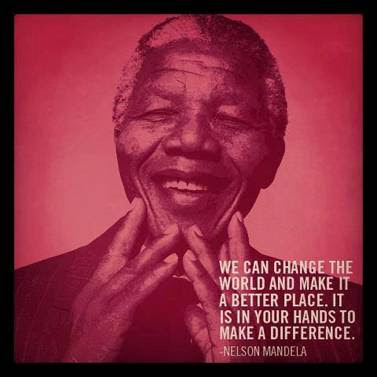
Newsletter November 2013 – Are you listening? Really Listening?
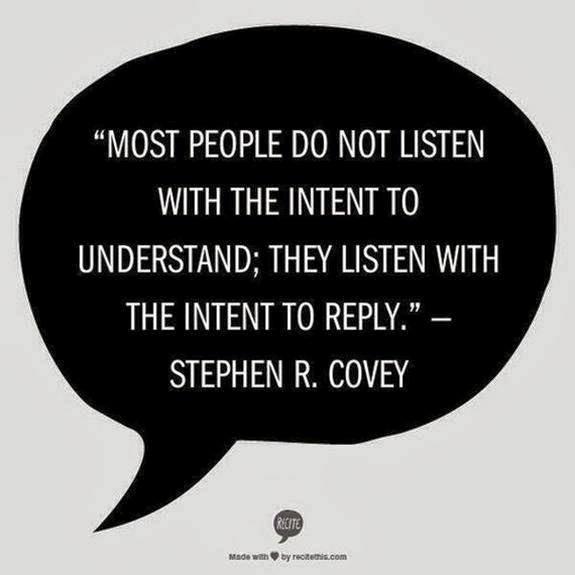
…which could explain why, so often, there are misunderstandings in communication!
Have you ever thought about how you listen, or about your particular listening style?
Do you listen attentively, or are you unconsciously listening competitively?
Let me explain.
Competitive or combative listening happens when you are:
- more interested in promoting our own point of view than in understanding or exploring someone else’s
- evaluating and making judgements about the speaker or the message
- listening to your own personal beliefs about what is being said
- you are waiting for a gap and formulating your rebuttal while “listening” with those “yes, but…”?
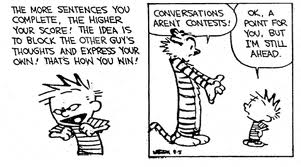
OR, are you listening passively or attentively?
This is a genuine interested in hearing and understanding the other person’s point of view BUT we assume that we have heard and understand correctly and therefore stay passive and don’t check what we have heard. The “aftermath” of not having verified, clarified or checked understanding usually occurs sooner than later.
Active or Reflective listening is the single most useful and important skill to listening.
To listen effectively, we must be actively involved in the communication process. In active listening we are:
- genuinely interested in understanding what the other person is thinking, feeling, wanting or what the message means
- active in checking our understanding before responding by restating or paraphrasing our understanding of the message and reflecting it for verification. With this verification or feedback process a misunderstanding is identified immediately, and can be clarified before any further misunderstanding occurs.
This is what distinguishes active listening and makes it so effective.
Active listening skills enhance and support workplace productivity and harmony in that:
- tasks and expectations are understood
- rapport with co-workers, bosses and clients is established
- resolves problems and conflicts between co-workers, bosses and or customers quickly
- answers questions and finds underlying meanings in what others say.
So what to do? Become an effective listener by practicing active listening and turning it into a successful communication skill.
You can also acquire more communication tips and tricks by attending one of our seminars or getting personal communication coaching. Don’t forget, if you “don’t have the time” we can “meet” on Skype. Contact me now.
Wishing you an awesome November


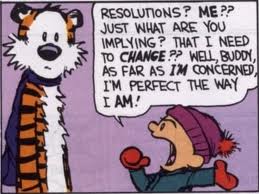
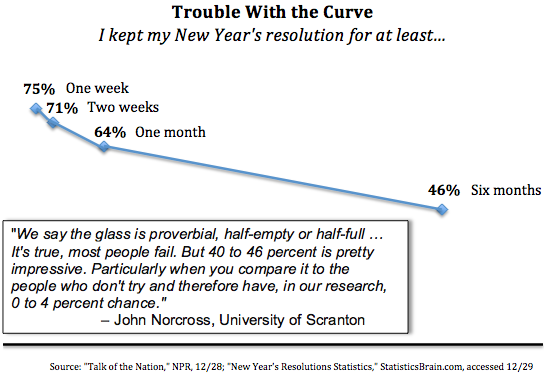
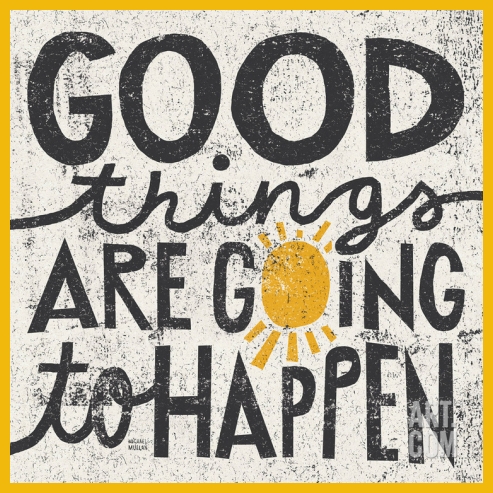
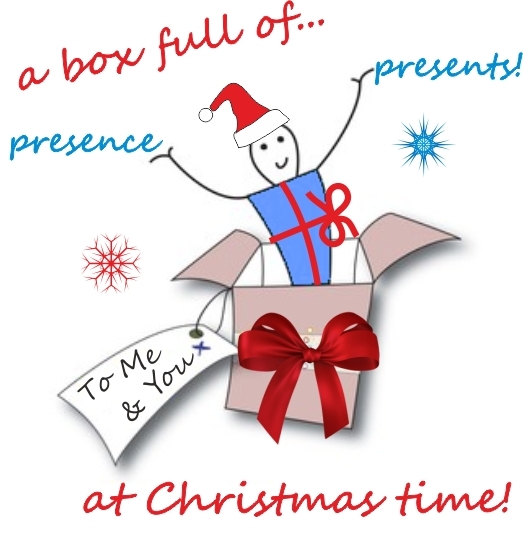


Recent Comments